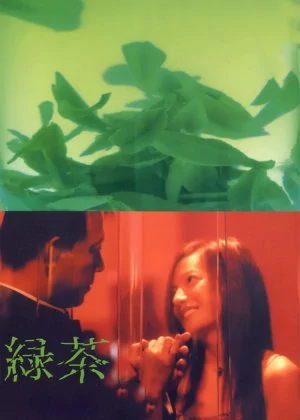Green Tea

Yuan Zhang's Green Tea [Lu Cha] is one of the early films that heralded in a new era for Chinese cinema. It contains small leftovers from the Fifth Generation's legacy, but every inch of Green Tea's celluloid foreshadowed that something was brewing. While these transitional films are often interesting to watch, especially from a historic point of view, they don't always hold up when revisiting them several year later. And since I'm not the person to put much value in historic worth, these rewatches are always a bit of a gamble. Luckily Green Tea has enough inherent qualities to retain its value.
![screen capture of Green Tea [Lu Cha]](/thumbs/style/site/1200xauto/green-tea-1.webp)
People like Yimou Zhang and Kaige Chen (the big icons of the Fifth Generation) put Chinese cinema on the map, but there's only so much you can say about China's transition from rural to urban/industrialized life. While directors like Zhangke Jia carry on their legacy, around the turn of the century some became more interested in directly exploring China's urban life. It was the start of roughly 15 years of absolute chaos, which is an absolutely positive thing when talking about art and/or creative entertainment. When all bets are off, that's when the good stuff happens.
At its core, Green Tea is a romance, but Zhang presents it as a mystery. That shift from drama to other, less arthouse-approved genres is exactly what marks the big split from the Fifth Generation. Where in the past genre elements were sometimes added to flavor the drama, Chinese directors finally dared to put genre front and center. With no clear template on how to make these films though, it was as if they had to reinvent cinema almost from scratch. Don't expect to sit down for a simple genre film, because you'll end up disappointed.
The film follows Wu Fang, a rather uptight student who loves going on blind dates. One day she meets up with Chen Mingliang, a slightly older guy who just got dumped by his fiancée. The date isn't a big success, but Mingliang is persistent and Fang is intrigued by his perseverance. Things get a bit more complex when Mingliang meets Langlang, a piano player who is the spitting image of Wu Fang, but whose personality is the polar opposite. Mingliang is torn between these two women, but he's forced to pick one of them if he wants a shot at serious relationship.
![screen capture of Green Tea [Lu Cha]](/thumbs/style/site/1200xauto/green-tea-2.webp)
If you want to break with the past, adding Christopher Doyle to your pay list is always a good bet. By far one of the best cinematographers at the time, Doyle provides some beautiful imagery that greatly enhances the mystery of the romance. The camera work is playful, the use of colors inspired. The editing also plays its part, often cutting between angles and providing different color stories within the same scene. It's a neat effect that's a little disorienting at first, but makes a sizeable impact on the overall atmosphere.
The music and sound design too deserve a special mention. It's a rather quirky soundtrack that highlights the playfulness of the film, but at the same time adds to the mystery. The returning theme is nice though a little unconventional and the additional twinkling sounds that are scattered throughout start to live a life of their own after a while. It's a very strange mix of music and sounds that are brought together in such a way that they manage to make a lasting impression, which is impressive work.
The cast of Green Tea isn't that big, but it does feature some familiar faces. Director Wen Jiang [The Sun Also Rises, Let the Bullets Fly) does a great job as Mingliang, hitting that exact balance between pushy and intriguing. Zhao Wei on the other hand takes on a double role and amazes in both parts. While the chemistry between the two seems to be a bit lacking at first, it builds up rather sneakily along the way and by the final scene, unlikely as their relationship may seem, it has become fully tangible.
![screen capture of Green Tea [Lu Cha]](/thumbs/style/site/1200xauto/green-tea-3.webp)
Yuan Zhang clearly breaks with the kind of films that got China some much-needed international attention, but his newfound love for genre cinema didn't immediately translate in familiar tropes or easy expectations. As a result, a film like Green Tea feels quite alien at times, something that is sure to deter many hardcore genre fans. It lives on that edge between author and genre, my personal sweet spot but one that is not an easy sell. In that sense it's probably not that surprising that the international market didn't really know what to do with these films, relegating many of them to obscurity.
Fans of genre cinema who are open to strong-willed directors adding their own flavor have a lot to look forward to here. The lush cinematography, the quirky and tantalizing soundtrack and the effective mystery, supported by some stellar performances, make for an intriguing and refreshing film that defies expectations. Green Tea is also pretty short and to the point, so you don't miss out on much if this film doesn't end up being your cup of tea. It's one of those films you simply have to experience to find out whether you like it or not. What's certain though is that Zhang delivered a unique film that may not have fully matured yet, but is sure to convince some with its youthful enthusiasm.